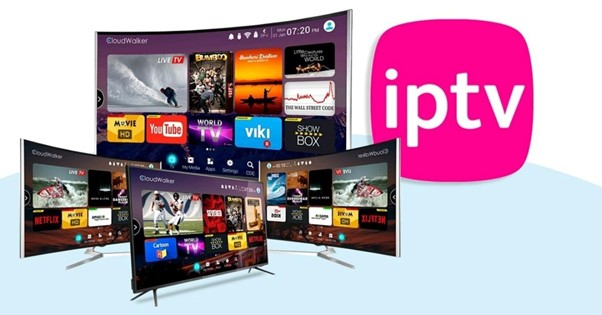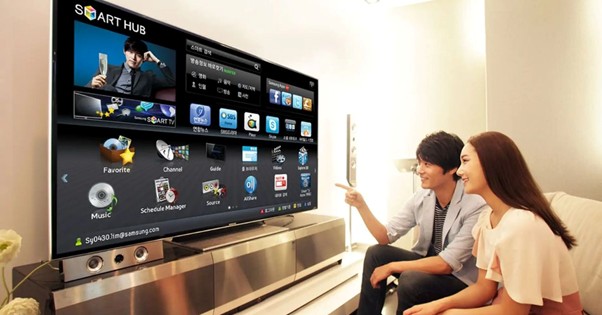Television has changed dramatically over the years. Traditional cable TV was once the primary way people watched their favorite shows. However, the rise of streaming services and IPTV providers has given viewers more choices than ever.
An IPTV provider delivers TV channels and on-demand content through the internet. This is different from cable TV, which uses physical cables to transmit programs. Both options have their advantages and drawbacks, making it important to understand which one suits your needs better.
In this guide, we will compare an IPTV provider with cable TV. We’ll discuss how they work, their pros and cons, and which option is best for your entertainment needs.
Table of Contents
ToggleWhat is Cable TV?
Traditional Broadcasting Explained
Cable TV is a television service that delivers content through coaxial or fiber-optic cables. It provides access to a variety of channels, including local networks, sports, and premium movie channels. Many households have relied on cable TV for decades due to its reliability.
Cable providers offer different subscription plans. These typically include a mix of basic and premium channels. Some providers also bundle their TV service with internet and phone plans for a complete package.
Advantages of Cable TV
One of the biggest benefits of cable TV is its consistent signal quality. Unlike internet-based services, cable TV does not rely on internet speed, which means fewer interruptions during streaming.
Another advantage is the availability of local and regional channels. Cable TV ensures access to live local news, sports, and other regional content that may not be available on some IPTV services.
What is an IPTV Provider?

Understanding IPTV Services
An IPTV provider offers television programming through the internet. Instead of traditional broadcasting methods, IPTV uses IP networks to deliver content. This allows users to stream live TV, movies, and on-demand programs from various devices, including smart TVs, smartphones, and computers.
IPTV services come in different types, such as live TV, video-on-demand (VOD), and time-shifted media. Many providers offer thousands of channels worldwide, making it a flexible option for global content access.
Advantages of IPTV Providers
One major advantage of using an IPTV provider is the ability to watch content anytime and anywhere. Unlike cable TV, which requires a physical connection, IPTV works over Wi-Fi or mobile data. This flexibility makes it a great choice for travelers or people who want to watch TV on multiple devices.
Another benefit is cost savings. IPTV subscriptions are usually more affordable than cable TV. Many IPTV providers offer customized plans where users can select only the channels they want, reducing unnecessary expenses.
Key Differences Between an IPTV Provider and Cable TV
Content Delivery Methods
A key difference between an IPTV provider and cable TV is how content is delivered. IPTV uses an internet connection to stream channels and on-demand programs, while cable TV relies on physical cables. This means IPTV is more flexible but may experience buffering if the internet speed is slow.
Cable TV, on the other hand, provides a stable connection with minimal interruptions. However, it lacks the portability that IPTV offers, as it requires a cable setup in a fixed location.
Customization and Flexibility
IPTV services offer more customization options compared to cable TV. Users can choose specific channels and access a vast library of on-demand content. Some IPTV providers even allow users to record live shows for later viewing.
Cable TV typically offers fixed channel bundles. While some providers offer DVR (Digital Video Recorder) services, the flexibility is still lower than IPTV. This makes IPTV a better choice for those who prefer personalized entertainment.
Factors to Consider When Choosing Between an IPTV Provider and Cable TV
Internet Speed and Stability
Since IPTV relies on the internet, a strong and stable connection is necessary for a smooth experience. If your internet speed is slow, IPTV services may buffer or have reduced video quality. A minimum speed of 10 Mbps is recommended for HD streaming, while 4K content may require at least 25 Mbps.
Cable TV does not depend on internet speed. This makes it a more reliable option in areas where high-speed internet is unavailable or unstable. However, cable TV users are limited to watching content on their television sets.
Pricing and Subscription Models
An IPTV provider usually offers more affordable plans compared to cable TV. IPTV services have flexible pricing options, allowing users to pay for only the content they want. Some providers even offer free trials to test their services before subscribing.
Cable TV subscriptions are generally more expensive. They often include hidden fees, equipment rental costs, and long-term contracts. This makes IPTV a more budget-friendly alternative for many households.
Which One is Better? IPTV Provider or Cable TV?
IPTV Provider: Best for Modern Viewers
If you prefer flexibility, global content, and cost savings, an IPTV provider is the best choice. It offers streaming on multiple devices, access to international channels, and personalized subscription plans. IPTV is ideal for those who enjoy on-demand content and watching TV on the go.
However, IPTV requires a strong internet connection. If you experience frequent internet disruptions, your viewing experience may suffer.
Cable TV: Best for Stability and Reliability
For those who prioritize a stable and uninterrupted viewing experience, cable TV remains a solid choice. It provides consistent signal quality, making it ideal for live sports, news, and regional programming.
However, cable TV lacks the flexibility of IPTV. The higher costs and limited customization options may not appeal to modern viewers who want a more personalized experience.
FAQs About IPTV Providers and Cable TV
Is an IPTV provider cheaper than cable TV?
Yes, IPTV services are generally more affordable, with flexible pricing plans and no hidden fees.
Do I need a fast internet connection for IPTV?
Yes, a stable internet connection is necessary for smooth IPTV streaming. At least 10 Mbps is recommended for HD content.
Can I watch local channels with an IPTV provider?
Some IPTV providers offer local channels, but availability varies. Check with the provider before subscribing.
Does IPTV work on all devices?
Yes, IPTV services are compatible with smart TVs, smartphones, tablets, computers, and streaming devices.
Which is better for live sports, IPTV or cable TV?
Cable TV provides stable sports streaming without buffering, while IPTV offers more channels and global sports coverage.
Conclusion
Both IPTV providers and cable TV have their strengths and weaknesses. If you want affordability, flexibility, and access to global content, an IPTV provider is the best option. It allows you to watch content anytime, anywhere, and on multiple devices.
On the other hand, if you prioritize stability and uninterrupted viewing, cable TV is still a reliable choice. It provides high-quality signals without the need for a strong internet connection.Ultimately, the decision comes down to your preferences. Consider your budget, internet speed, and content needs before choosing the best option for you.
Related Posts:
Shashi Teja
Related posts
Hot Topics
Understanding TruthFinder’s Background Check Features
Background checks have become increasingly relevant for personal safety and information gathering in digital environments. TruthFinder offers comprehensive background check…
How MLOps Is Shaping the Future of AI in Business
Artificial intelligence (AI) has evolved from a futuristic idea to a strategic necessity for companies looking to innovate, grow, and…



